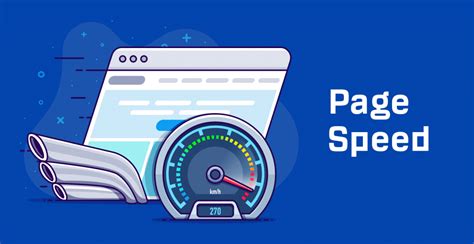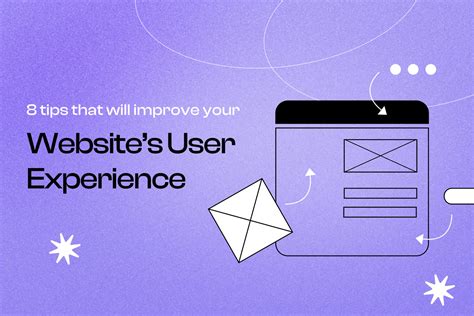Imagine a bustling marketplace filled with eager customers, eagerly seeking the finest goods. Now, envision yourself as the proud owner of a stall within this vibrant hub. How can you ensure that your stall, your website, stands out amidst the vibrant chaos? The answer lies in leveraging the power of search engine optimization, a pivotal strategy that can catapult your online presence to new heights.
In this age of digital prominence, where being lost among a sea of similar offerings is an ever-present danger, it is imperative to understand and implement the techniques that will undoubtedly boost your website's search engine rankings. By increasing your visibility and placing your virtual storefront at the forefront, you invite a wave of new visitors eager to explore what you have to offer.
Within the realm of search engine ranking, there exists a multitude of secrets waiting to be uncovered. From understanding the intricacies of keyword research to crafting compelling meta descriptions, we have compiled a carefully curated list of invaluable tips to help you ascend the rankings. Harness the power of these lesser-known techniques, and watch as your website gradually surpasses the competition.
Prepare to embark on a journey of discovery, as we unveil the top expert advice to optimize your website's visibility in an ever-expanding virtual landscape. By following these tried-and-tested methods, you will be well on your way to achieving the online recognition that your brand deserves. Join us as we delve into the hidden depths of search engine ranking, unraveling its nuances and sharing the secrets that lie at the core of its success.
Enhance your website's loading speed

Optimizing your website's loading speed is a crucial aspect of improving its overall performance and user experience. By enhancing the time it takes for your website to load, you can ensure that visitors are not left waiting and are more likely to stay on your site and engage with your content.
Here are some effective strategies to optimize your website's loading speed:
- Minimize file sizes: Compress and optimize images, scripts, and other media files to reduce their size without compromising on quality.
- Enable browser caching: Utilize browser caching to store static files on visitors' devices, allowing for faster loading times on subsequent visits.
- Use content delivery networks (CDNs): Distribute your website's files across multiple servers worldwide to minimize latency and ensure faster access for users in different geographic locations.
- Employ asynchronous loading: Load non-essential elements and scripts asynchronously to prevent them from blocking the rendering of critical parts of your website.
- Minimize HTTP requests: Reduce the number of HTTP requests by combining multiple files into a single one or using data URIs to inline small resources.
- Optimize code and scripts: Remove unnecessary code, eliminate render-blocking scripts, and minify CSS and JavaScript files to enhance loading speed.
- Utilize responsive design: Implement a responsive design approach to ensure that your website adapts seamlessly to different screen sizes and devices, reducing the need for excessive loading of mobile-specific resources.
- Choose a reliable hosting provider: Select a hosting provider that offers fast servers, reliable infrastructure, and sufficient bandwidth to support your website's needs.
- Monitor and optimize plugins: Regularly review and optimize the plugins or extensions installed on your website, as they can sometimes impact loading speed.
- Test and analyze performance: Continuously monitor and analyze your website's loading speed using tools like Google PageSpeed Insights or GTmetrix, and make necessary adjustments based on the results.
By implementing these strategies, you can significantly improve your website's loading speed, leading to better user satisfaction, higher search engine rankings, and increased conversions.
Create Compelling and Unique Content
One crucial factor that greatly influences the visibility of your website in search engine results is the quality and originality of its content. Developing high-quality and engaging content is essential for attracting and retaining visitors while also improving your website's search engine ranking.
When creating content for your website, it is important to focus on delivering information that is both relevant and valuable to your target audience. Craft your content in a way that captivates readers, keeping them engaged and wanting to explore more. Unique and original content sets your website apart from the competition, establishing you as an authority in your niche.
Search engines prioritize websites that provide meaningful and useful content to users. To improve your website's search engine ranking, consider the following strategies:
- Research your target audience and identify their needs and interests.
- Conduct keyword research to understand the search terms and phrases that are relevant to your content.
- Create well-structured and organized content that is easy to read and navigate.
- Use clear and compelling headlines to grab the attention of your audience.
- Incorporate relevant keywords naturally into your content, but avoid keyword stuffing.
- Write longer articles that provide in-depth information and value to your readers.
- Add visually appealing elements such as images, videos, and infographics to enhance the user experience.
- Regularly update your content to ensure it remains relevant and up-to-date.
- Promote your content through social media, email marketing, and other channels to expand its reach.
- Encourage user engagement by allowing comments, sharing options, and opportunities for feedback.
By focusing on creating high-quality, unique, and informative content, you can significantly improve your website's search engine ranking. This not only helps attract organic traffic but also establishes your website as a trusted resource in your industry.
Optimize Your Content with Relevant Keywords

Incorporating relevant keywords into your website's content is crucial for improving its visibility in search engine results. By strategically using words and phrases that align with your target audience's search queries, you can enhance your website's chances of ranking higher on search engine result pages (SERPs).
When creating your website's content, aim to include keywords that accurately represent the topics and themes covered on your website. These keywords should be seamlessly integrated into your text, providing useful and informative content to your readers while also appealing to search engines' algorithms.
Researching and identifying popular and relevant keywords is the initial step in optimizing your content. Keep in mind that simply incorporating random keywords will not yield the desired results. Conduct thorough keyword research to understand the search terms used by your target audience and competitors. This will help you identify high-ranking keywords and phrases that you can include in your content.
Once you have a list of relevant keywords, utilize them strategically throughout your content. Incorporate them in your headings, subheadings, and naturally within the body text. However, ensure that your content remains readable and valuable to your readers rather than sounding forced or stuffed with keywords.
It's also important to regularly update your website's content with new and trending keywords. This will help your website stay relevant and maintain its visibility in search results. Additionally, avoid overusing keywords, as search engines may penalize websites that engage in keyword stuffing or spamming.
By using relevant keywords in your website's content, you can improve its search engine ranking and attract more organic traffic. Remember to stay up-to-date with industry trends and constantly optimize your content to ensure optimal visibility and success in organic search results.
Build a Solid Network of Inbound Links
Enhancing your website's visibility on search engines involves a crucial factor called inbound links, an interconnected network of referrals that can significantly impact your online presence. By establishing a strong portfolio of high-quality inbound links from reputable sources, you can successfully boost your website's credibility, relevance, and authority.
A comprehensive strategy for building a robust network of inbound links involves various tactics, such as:
| 1. | Engaging in guest blogging opportunities: |
| 2. | Collaborating with industry influencers: |
| 3. | Participating in relevant forums and discussions: |
| 4. | Creating valuable and shareable content: |
| 5. | Implementing effective social media strategies: |
| 6. | Optimizing your website's internal linking structure: |
| 7. | Obtaining backlinks from trusted directories: |
| 8. | Collaborating with complementary businesses: |
| 9. | Utilizing press releases and media coverage: |
| 10. | Monitoring and improving your existing inbound links: |
By consistently working on building a robust network of inbound links from diverse sources, you can solidify your website's reputation, increase its organic visibility, and ultimately improve your overall search engine rankings.
Ensuring a Mobile-Friendly Website: Boosting Accessibility

When it comes to reaching a wider online audience and improving user experience, making sure your website is optimized for mobile devices is of utmost importance. In today's digital era, where the majority of internet users access the web via their smartphones or tablets, creating a mobile-friendly website is crucial for success.
1. Responsive Design:
Implementing a responsive design ensures that your website adapts to different screen sizes and resolutions, providing users with an optimal viewing experience, regardless of the device they are using to access your site. This flexible approach to design allows content to be resized and rearranged, enhancing usability and readability.
2. Mobile-Friendly Navigation:
Simplify navigation menus and ensure that they are easy to use on touchscreens. Consider utilizing a hamburger menu or condensed navigation options to fit smaller screens without sacrificing functionality.
3. Fast Loading Speed:
Mobile users have a shorter attention span, and slow-loading websites can lead to high bounce rates. Optimize your website's performance by compressing images, minifying CSS and JavaScript files, and leveraging browser caching to deliver a faster loading speed and a smoother user experience.
4. Clear and Concise Content:
Mobile devices have limited screen space, so it is essential to present your content concisely and to the point. Craft clear and concise headlines, paragraphs, and bullet points to enhance readability on smaller screens.
5. Touch-Friendly Elements:
Ensure that your website's buttons, links, and interactive elements are easy to tap with a finger. Designing larger clickable areas and providing enough spacing between elements can prevent accidental clicks and improve user interaction.
6. Avoid Flash and Pop-ups:
Flash content and pop-up windows are not mobile-friendly and can frustrate users. Instead, opt for HTML5 elements and consider using modal overlays for important messages or alerts.
7. Test on Multiple Devices:
Regularly test your website on various mobile devices to ensure consistent performance across different platforms and screen sizes. This includes testing on both iOS and Android devices, as well as different screen orientations.
8. Optimize Forms:
If your website requires forms, simplify them for mobile users. Use auto-fill features, optimize input fields, and minimize the number of required form fields to streamline the process and make it easier for users to complete.
9. Mobile SEO:
Optimize your website for mobile search engines by creating mobile-friendly URLs, including relevant keywords in your mobile website's content and meta tags, and ensuring fast page loading speed. Mobile SEO can boost your website's visibility in mobile search results.
10. Continuous Testing and Optimization:
Regularly monitor your website's performance, make improvements based on user feedback, and stay updated with the latest mobile design and development practices. Continuous testing and optimization are key to ensuring a seamless and mobile-friendly experience for your website visitors.
Optimizing Meta Tags and Descriptions for Effective Website Ranking
One crucial aspect of enhancing your website's visibility on search engines involves effectively utilizing meta tags and meta descriptions. These elements play a significant role in providing search engines with information about your website's content and relevancy, ultimately influencing its ranking in search results.
| Meta Tags | Meta Descriptions |
|---|---|
Meta tags offer a brief summary of the page's content, offering search engines and users a snapshot of what your webpage is about. By strategically incorporating relevant and targeted keywords, you can optimize your website's visibility in search results. Ensure that each page has unique meta tags that accurately represent the content within. Utilize synonyms and related terms to diversify your keyword usage, improving the chances of attracting a wider audience. Meta tags have a specific format, including the title tag, description tag, and keyword tag. Use each tag effectively to provide concise and informative descriptions without exceeding recommended character limits. | Meta descriptions appear below the page title in search results, providing users with a preview of what they can expect when clicking on your website. Crafting compelling, concise, and relevant meta descriptions is essential to attract clicks from potential visitors. Focus on utilizing action-oriented language, showcasing the unique value and benefits your website provides. Incorporate related keywords seamlessly into the meta description while maintaining readability and avoiding keyword stuffing. Avoid using duplicate meta descriptions across multiple pages, as this can dilute the effectiveness of your website's ranking. Customize each meta description to accurately represent the specific content and purpose of each page. |
By harnessing the power of meta tags and meta descriptions, you can improve your website's search engine visibility and increase the likelihood of attracting relevant organic traffic. Remember to regularly review and update these elements to align them with your website's evolving content and target audience.
Enhance Your Website's User Experience

Discover effective strategies to enhance the overall website experience for users and optimize their engagement with your content.
Create an impeccable browsing experience that captivates visitors and keeps them glued to your website. Optimize webpage load speed, ensure smooth navigation, and employ user-friendly design elements to minimize bounce rates.
Develop a visually appealing and intuitive layout that facilitates effortless user interaction. Streamline the information architecture, prioritize essential content, and make it easy for users to find what they're looking for.
Implement responsive design to ensure your website adapts seamlessly to different devices, enabling an optimal viewing experience on mobile phones, tablets, and desktops. This guarantees accessibility for a broader audience and improves overall user satisfaction.
Invest in high-quality and relevant content that resonates with your target audience. Craft compelling headlines and use concise, informative language that conveys your message effectively. Engage users with valuable information, engaging storytelling, and interactive elements such as videos and infographics.
Optimize your website's search functionality to enable users to find the desired information effortlessly. Incorporate intuitive search bars, filters, and sorting options to enhance user experience and facilitate quick access to specific content.
Ensure fast and efficient website loading times to prevent user frustration. Optimize your website's code, compress images, and leverage caching techniques to improve overall performance. Aim for a seamless browsing experience that keeps users actively engaged.
Implement clear and prominent calls-to-action (CTAs) to guide users towards desired actions. Employ persuasive language and captivating visuals to encourage user interaction, such as subscribing to a newsletter, making a purchase, or contacting your business.
Regularly monitor user behavior and gather valuable feedback to identify areas for improvement. Utilize analytics tools to track key metrics, such as bounce rate, time on page, and conversion rates. Apply this data to optimize your website's design, content, and functionality further.
Enhancing website accessibility is crucial for providing a positive user experience. Ensure your website complies with web accessibility standards, making it accessible to individuals with disabilities. Incorporate alt tags for images, provide transcription options for audio and video content, and maintain clear and concise content structure.
Engage with your audience through social media integration. Encourage users to share your content on popular platforms such as Facebook, Twitter, and LinkedIn. Foster a sense of community by enabling comments and user-generated content, promoting user engagement and enhancing the overall user experience.
Regularly Refresh and Maintain Your Website's Content
In order to enhance your website's visibility on search engine results pages, it is crucial to consistently update and upkeep your website's content. Regularly refreshing and maintaining the information on your website not only helps to improve its overall quality and relevance, but also signals to search engines that your website is active and authoritative.
1. Engage Your Audience with Fresh Content Keep your visitors engaged and coming back for more by regularly publishing new and interesting content. Make use of relevant keywords and provide valuable information that addresses the needs and interests of your target audience. |
2. Regularly Update Existing Pages Avoid stagnant website pages by updating and improving existing content. Conduct regular audits to identify outdated information, broken links, or any other issues that may harm the user experience. Updating your pages demonstrates your commitment to providing accurate and up-to-date information. |
3. Incorporate Keywords Naturally Integrate relevant keywords naturally into your website's content. This helps search engines understand the context and relevance of your content, and improves your chances of ranking higher for those keywords. |
4. Implement a Blog or News Section Consider adding a blog or news section to your website where you can regularly publish fresh content. Blogs and news articles are dynamic and provide an opportunity to target specific keywords and engage visitors with interesting updates and insights. |
5. Optimize for Voice Search With the rise of voice assistants and voice search, make sure to optimize your content for voice queries. Use natural language, provide concise answers to common questions, and focus on long-tail keywords that people are likely to use when speaking. |
6. Utilize Social Media Integration Integrate social media platforms into your website to leverage their potential for content distribution and engagement. Share your updates and new content on social media channels to reach a wider audience and drive traffic back to your website. |
7. Encourage User-Generated Content Invite your audience to contribute user-generated content, such as reviews, comments, or testimonials. User-generated content not only adds fresh perspectives but also encourages interaction and engagement, signaling to search engines that your website is authoritative and valuable. |
8. Monitor and Optimize Performance Regularly analyze your website's performance using tools like Google Analytics. Identify underperforming pages and take necessary actions to improve their rankings. Performance optimization includes factors such as page load speed, mobile-friendliness, and overall user experience. |
9. Refresh Meta Data and Alt Tags Ensure that your meta titles, descriptions, and alt tags accurately represent the content on your website. Update them periodically to match the evolving nature of your website. This helps search engines understand and index your content correctly. |
10. Build High-Quality Backlinks Earn high-quality backlinks from reputable websites to boost your website's authority and visibility. Engage in content partnerships, guest blogging, or other link-building strategies to create a network of relevant and trusted sources that will strengthen your search engine rankings. |
FAQ
What are some tips for improving my website's search engine ranking?
There are several tips you can follow to improve your website's search engine ranking. Some of these include optimizing your website's content with relevant keywords, creating high-quality backlinks, improving website speed and mobile-friendliness, regularly updating and refreshing your website content, and using metadata effectively.
Why is it important to improve my website's search engine ranking?
Improving your website's search engine ranking is important because it helps to increase visibility and organic traffic to your website. A higher ranking means that your website is more likely to appear on the first page of search engine results, which can lead to more website visitors and potential customers.
What is the role of keyword optimization in improving search engine ranking?
Keyword optimization plays a crucial role in improving search engine ranking. By researching and strategically incorporating relevant keywords into your website's content, meta tags, headings, and URLs, search engines can better understand the topic and relevance of your website. This helps search engines match your website with relevant search queries, ultimately improving your ranking.
How can I improve my website's mobile-friendliness?
To improve your website's mobile-friendliness, you can start by using a responsive design that automatically adjusts the layout and content based on the user's screen size. It's also important to optimize your website's loading speed on mobile devices, simplify navigation, and ensure that all elements are easily clickable. Testing your website on different mobile devices and using mobile-friendly plugins can also help improve its performance on mobile platforms.
Is it necessary to regularly update website content for better search engine ranking?
Yes, regularly updating your website content can significantly improve your search engine ranking. Search engines favor fresh and relevant content, so by regularly adding new blog posts, articles, or updating existing content, you can signal to search engines that your website is active and up-to-date. This can lead to improved indexing and visibility on search engine results pages.



